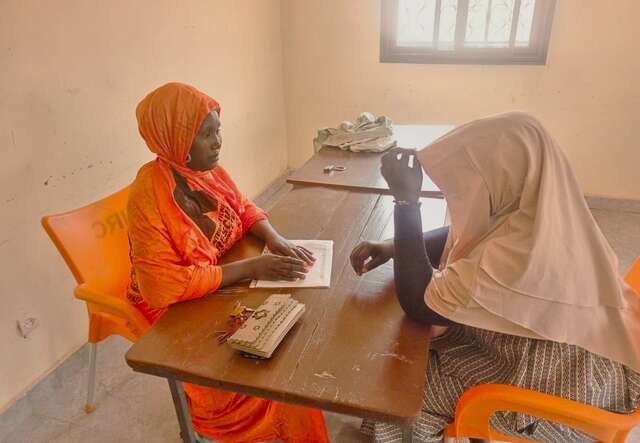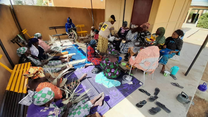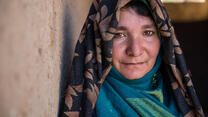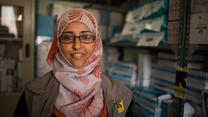"Ever since I was a teenager, people have confided in me, whether at school or at home."
In 2021, Amina has turned this strength into a profession. In Ténenkou Cercle, in central Mali, she travels to the most inaccessible communes to support women and girls.
Amina, a woman in her thirties and a native of the locality, has witnessed the deterioration of the security situation caused by ongoing violence and conflict, and now works as a case manager for the International Rescue Committee (IRC), providing psychosocial support, awareness-raising, mental health care referrals and recreational activities in safe spaces for women and girls in Ténenkou and nearby Diafarabé.
Ténenkou Cercle is made up of ten communes and has a population of around 250,000. For more than ten years, its inhabitants have been suffering the effects of insecurity. This situation is reflected in the large-scale displacement of populations, reduced or non-existent access to basic social services such as education, health, and reliable access to drinking water. Thousands of vulnerable people are in need.

Through its work in this area, the IRC is helping to reduce mortality among vulnerable populations and to improve living conditions and the level of protection for displaced communities. Population movements expose the most vulnerable, including women, young people and children, to the risk of abuse.
Amina and the IRC teams work together with the local communities and authorities to identify and manage cases of gender-based violence (GBV), thanks to financial support from the European Union (EU). The team runs its services across eight health centres and offers issuing birth certificates and registers in addition to the psychosocial support.
Many victims remain silent about the abuse they have suffered for fear of being judged and rejected by the community. This trauma can have serious consequences, such as isolation and depression.
"This job isn't easy every day. Some of the difficulties I encounter are the cruelty of some of the stories and my feeling of powerlessness in the face of the grief of some survivors. It's often difficult for me to gain the trust of certain victims, as they fear the gaze of society and the need for confidentiality.”
Despite everything, Amina perseveres. Through various awareness-raising initiatives and the involvement of the whole community, particularly community leaders, she has noticed an improvement in tolerance. On-the-job capacity-building through the IRC in collaboration with the EU, Amina has learned tools and techniques for identifying and referring cases. Many victims agree to open up to her and receive psychosocial support. Victims are less stigmatized.
"I'll never forget the case of two underage survivors of sexual abuse. The whole community, including community leaders, got involved so that they could benefit from holistic assistance.”
These happy outcomes and the acceptance of her work motivate and encourage Amina to give her best.
"My dream is to see all forms of violence against girls and women disappear. I want everyone at risk of gender-based violence to be able to access prevention and care services by extending safe spaces throughout Ténenkou. In the near future, I want to learn about other approaches to better support the women and girls in my community. “
In Tenenkou, the IRC fosters social cohesion by helping women form groups to create together. These activities generate income and empower them to plan for their futures. These safe spaces, where women can freely exchange, provide also a crucial opportunity to identify women at risk of violence and offer help if needed.
In 2023, in central Mali, 54 survivors of GBV received medical treatment and psychosocial support, including 11 cases of rape treated within 2 hours thanks to support from the European Union. 695 women and girls benefited from recreational activities and psychosocial support.
The International Rescue Committee partners with the European Union to provide life-saving support to people caught in conflict and disasters around the world. Our work funded by the EU enables people to survive, recover and rebuild their lives.




